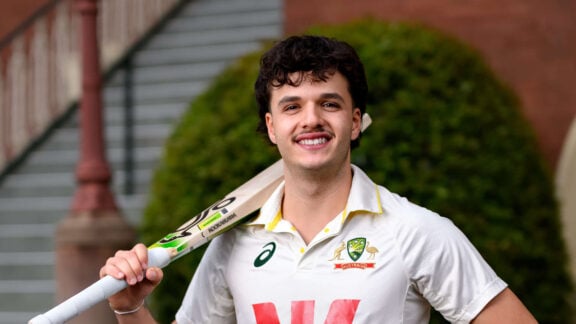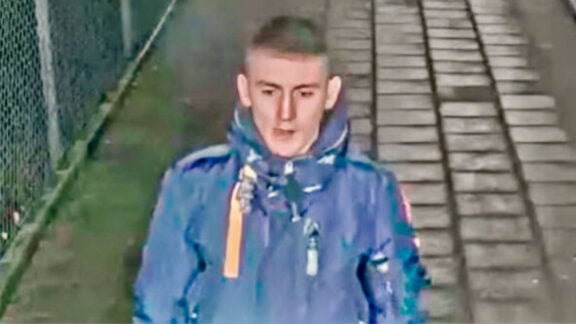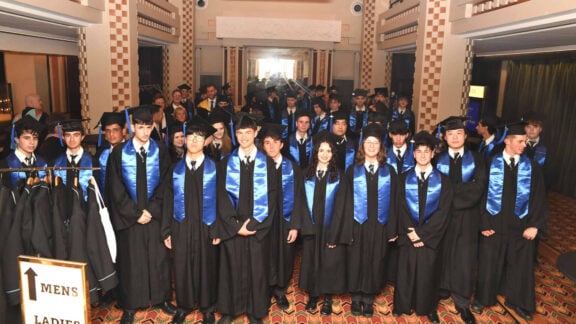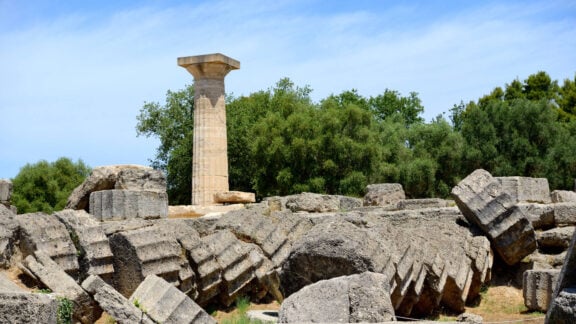The conversation around keeping the Greek language alive in schools across all levels has recently become one of urgency.
Neos Kosmos received a letter from an advocate of the Greek language and former Greek Community of Melbourne and Victoria board member, Theo Markos, which points to an alarming decline of numbers in VCE Greek.
Markos writes that the number of students studying Greek at the VCE level has dropped below 200 – 196 students sat for Greek VCE exam.
“This is a matter that should concern all those interested in teaching the Greek language, and maybe it’s time to reassess our approach and start thinking outside the square,” Markos said.
“In 1998 there were approximately 650 students studying Greek at VCE level whilst [sic] in 2008 the figure was around 300.”
Markos points to the emigration from Greece produced by the Greek Financial Crisis 2010 to 2016, and suggests that ‘given the influx of Greeks coming to Australia in the past decade one would’ve thought that the number would’ve remained around the 300 mark”.
He adds “I anticipate that at least 20 percent of those students doing Greek this year, had some connection with that migration wave.
“So clearly something is going wrong,” Markos said.
“Greek Australian students and their parents are choosing not to take up Greek at its highest secondary level, and many of them decide to abandon Greek at the end of primary school.”
Markos said that he “informed Pharos of these findings and I’m hopeful that steps will be taken to address this matter and seek solutions”.
Pharos, is a coalition of groups and individuals working to revitalise the teaching of Modern Greek in Victoria.
At the same time, Markos is heartened by the many second, third, and fourth-generation Greeks embracing their Greek culture at festivals, such as Antipodes.
Clear signs that these young Greek Australians are not shunning their culture; however, as Markos adds, “language is still key.”
The underlying issues behind the shrinking student numbers continuing Modern Greek at year 12 are many and complex.
According to two Modern Greek teachers Neos Kosmos spoke from Pharos, there are no simple solutions however various options that can be looked at to halt the decline.
One option is to develop different streams of Greek, one for beginners and another for those who are fluent.
Parents need to encourage their children
Denise Diakodimitriou, the Secretary of the Modern Greek Teachers Association of Victoria (MGTAV) and a member of Pharos, told Neos Kosmos that parents have a “crucial role to play in encouraging their children to study Greek whether at a school which offers Greek during the day or at an after-hours school.”
“They can create a home environment where value is placed on learning Greek, provide opportunities to connect with the language and culture and talk about the many benefits of learning languages positively,” Diakodimitriou told Neos Kosmos.
The MGTAV secretary conceded that maintaining Greek language learning “becomes more involved once children begin high school” she said parents need to play a “role in encouraging their kids to continue”.
She pointed to an upcoming parent seminar on “raising children bilingually” by Professor Joseph Lo Bianco, the facilitator of Pharos, which will be announced and aimed at empowering parents to “make Greek language maintenance a positive experience for the whole family, for both parents and children.”
Third-generation Greek Australian students often view Greek at VCE studies as an impediment to studying other subjects such as literature, mathematics, and science which are often seen as essential.
Diakodimitriou agrees that this is a “common perception” however, she said, “For many students, it may be a subject in which they already have some foundation”.
“There is less ‘content’ to memorise and more skill development; there are the cultural, social and historical components which create interest; but inevitably all VCE courses will have their demands.”

Two streams are needed
Eva O’Hehir, a Greek teacher from Northcote High School, in Melbourne’s inner north agree that various options need to be looked at such as, two streams of learning, one for those who are competent, and another for those born here, especially of third and fourth generation, who do not have a fundamental understanding.
“Many students begin in primary school, others only have the opportunity once they start secondary school. Many have a Greek background, and others don’t. In theory, the curriculum is designed to give students enough experience with the language to prepare them for VCE.
“Still, we are finding that, realistically, the path to VCE for our students is not a given.
“Two levels at VCE is one avenue that members of our community are putting forward. It would be in our interest to explore all options. And that is exactly what the Pharos working party is currently doing.”
O’Hehir has been advocating for a second pathway for 20 years.
“The parents of students with beginner level Greek were disappointed that there was no other pathway; we never were looking for another model; beginners love Greek, they enjoy it and love communicating in Greek; however, they cannot continue to year 12 without a separate pathway.”
Diakodimitriou says there is a need for more “suitably qualified teachers” who promote “the value of languages by using positive language and making decisions which strengthen programs, not weaken them.”
“Progress will be made, and is being made when all schools that offer the Greek language- government, independent, community-based, day and afternoon schools- work together. It is the only way to see our objectives realised.”
The number of students continuing with Greek at VCE has dropped to below 200 for the first time in 2023. In 1998 that number was 650, and by 2008 it had dropped to 300.
“The statistics are sobering,” said Diakodimitriou.
“Greek at VCE is on the radar at the MGTAV and Pharos; we are always monitoring”, the MGTAV secretary said, adding “, Time is of the essence, of course, so we are continuing to put VCE at the top of our Pharos areas of focus.”
Greek is important across all studies
Eva O’Hehir, from Northcote High School, said, students and parents must fully grasp the importance of language learning for work and intellectual development.
“There are no simple solutions; students are less inclined to do languages and now focus on subjects for ‘work’.”
“It is a complex issue; we do not have teachers, we don’t have resources, we don’t have feeder courses in primary school.
“The numbers have fallen, we have had six students studying VCE Greek, and it’s the last year the program will be offered,” O’Hehir said.
She recognises that many second-generation parents use English as the primary form of communication, as do their children, and “unless there is a second pathway for beginners”, many third-generation children do not continue with Greek.
In the end, Diakodimitriou and O’Hehir emphasised the importance of learning Greek to bolster university VCE subjects like history, sciences, and politics.
“There are thousands of words in the English language which have a Greek origin; concepts in maths, science, the arts and humanities also are influenced by Greek civilisation, so it is a logical step to pursue Greek to enrich your understanding of those areas of study.
“Study of Greek language strengthens English language usage and, this is something schools can do, to make those connections,” said Diakodimitriou.
Greek organisations need to coordinate
O’Hehir wants coordinated action by Greek organisations and points to the Italian organisation COASIT as a model which runs a program that “sends a teacher for one day at least, per school, even one hour” and thus ensures the continuing relevance of Italian.
“We need an overhaul of Greek language teaching through a centralised and organised board encompassing all schools.”
She said that the Greek Community of Victoria, Archdiocese and private schools all run language programs; they do so in a disparate and uncoordinated way, and there is a real need for a “centralised organisation ensuring that state schools maintain Greek, something that COASIT in the Italian community has done well.”
“We are all exhausted and cannot go on without a multilevel coordinated approach.”
She also points to federal and state governments “who no longer see languages as having an important place in the curriculum”.
In the latest Universities Accord by the Commonwealth Government, the only languages mentioned are Indigenous ones.
The Pharos Working Party is conducting a survey on studying Greek at senior levels. Students are asked about their motivations for choosing Greek and what prevents others from pursuing it.
The findings will inform decisions on Greek language study, particularly at LaTrobe University, which offers a Greek program in Victoria.
The survey can be found here.









